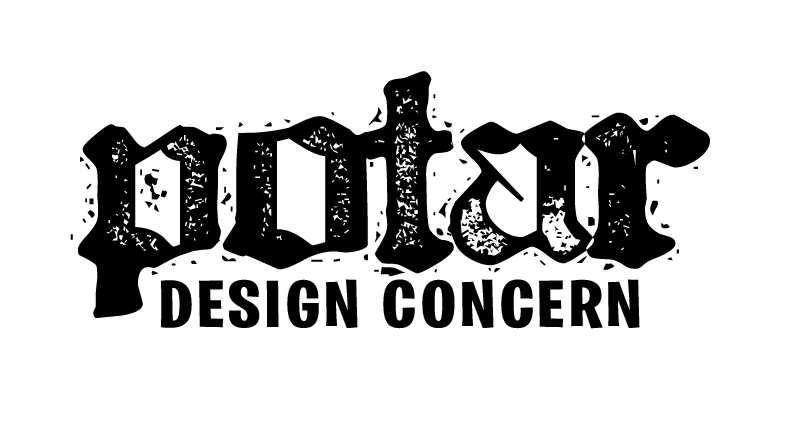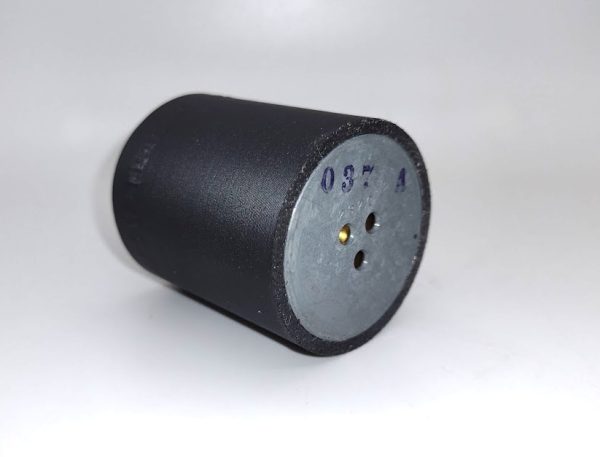I found some pretty cool vintage military carbon mic elements with date codes that place them in the early 1950s. I have dubbed the build the HARMO based on their resemblance to some smaller harmonica mics. From beat boxing, to harmonica, to screamo; the HARMO is a sound freaks toy.
The HARMO
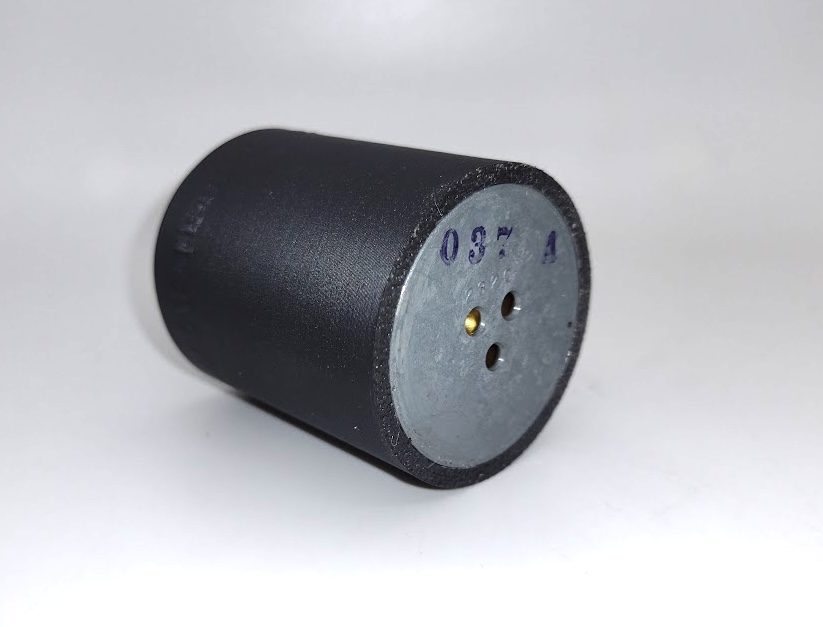
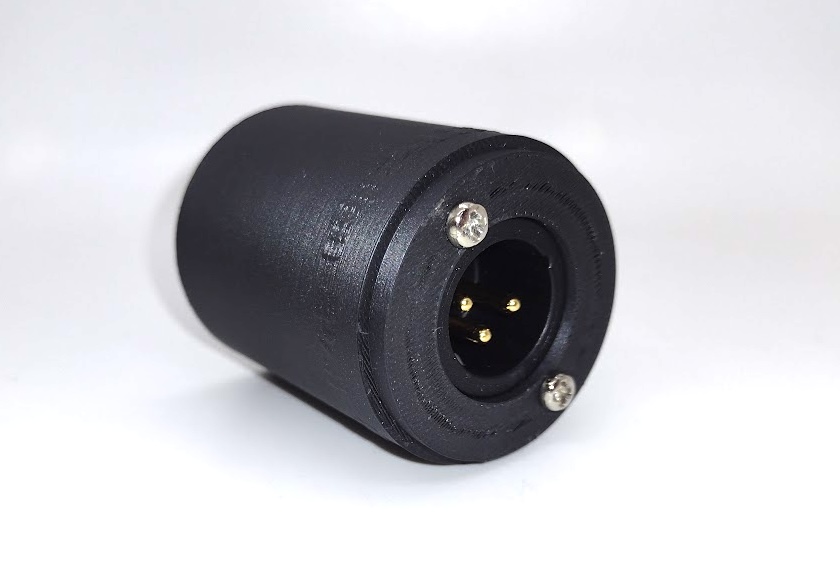
What does it sound like?
How does a carbon microphone work?
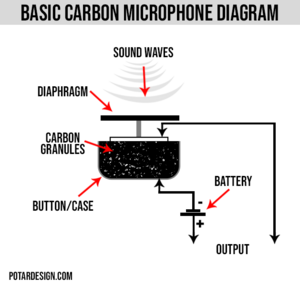
Carbon microphones take sound wave vibrations and transfer them to a diaphragm that presses against and excites carbon granules, changing the resistance between two metal plates. This change in resistance creates an electrical current that reproduces the sound. The basic diagram to the left shows how carbon microphones are designed.
Originally carbon microphones were primarily used in broadcast environments, emergency public address systems, and in telephone handsets.
Carbon microphones are historically noisy and have a pretty limited frequency response. This also makes them sound very unique, offering an interesting character. That’s why they are still used in recording studios today. More info on Wikipedia.
Purchase your own HARMO Carbon Microphone
HARMO Carbon Mic
Carbon Microphone from POTAR
- Vintage Military 35mm carbon mic capsule
- P48 powered
- Neutrik Connector
- Nichicon Audio Capacitors
- Custom 3D printed body
- Under 2″ tall
3 in stock
